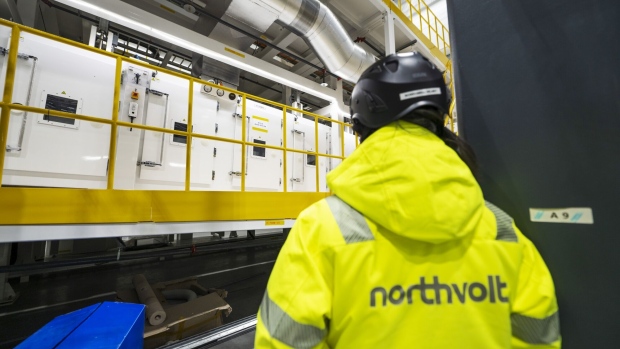Roland Oliphant

A French firefighter works to extinguish a burning car during the fifth day of protests - Reuters
France dispatched its elite GIGN commandos to reinforce beleaguered police as the country endured a fifth night of violence over the killing of Nahel Merzouk.
Some 45,000 police officers and Gendarmes were mobilised on Saturday evening after hundreds of people gathered to bury the 17-year-old police shooting victim in the Paris suburb of Nanterre.
Arrests during a fifth night of rioting had risen to 719, the interior ministry said on Sunday morning. Hours earlier the ministry had given a provisional figure of 486 arrests, saying violence seemed to be lessening compared with the previous night when about 1300 people were taken into custody.
Rioting first broke out over the death of Merzouk on Tuesday.
“A calmer night thanks to the resolute action of the security forces,” Interior Minister Gerald Darmanin tweeted earlier on Sunday.
Mr Darmanin said 200 riot police had been mobilised in the port city of Marseille, where TV showed footage of police using tear gas as night fell.
Rioters rammed a car into the home of the mayor of a town south of Paris, injuring his wife and one of his children, according to the mayor on Sunday.

Police in front of the damaged home of the Mayor of l'Hay-les-Roses, Vincent Jeanbrun - Geoffroy Van Der Hasselt/AFP/Getty Images
Mayor Vincent Jeanbrun wrote on Twitter that protesters “rammed a car” into his home before “setting a fire” while his family slept. “Last night a milestone was reached in horror and disgrace,” wrote the mayor of the town of L’Hay-les-Roses.
“My wife and one of my children were injured,” Mr Jeanbrun said. “It was an attempted murder of unspeakable cowardice.”
Several schools, police stations, town halls and stores have been targeted by fires or vandalism in recent days but a personal attack on a mayor’s home is unusual.

French riot police officers during the fifth day of protests

Police try to bring riots in Marseille under control as unrest continues following the shooting of Nahel Merzouk - Sener Yilmaz Aslan/SIPA/Shutterstock
At midnight, the authorities in Lyon and Marseille were reporting fewer incidents than Friday night, with 77 people arrested as of around 1.30 am local time in the two cities.
“Since the beginning of the evening, all potentially violent groups in the city centre have been systematically dispersed by the police and gendarmes, if necessary with the use of tear gas,” the Bouches-du-Rhône Police Prefecture said, addressing the violence in Marseille.
“The situation is under control.”
In Paris and its nearby regions, where around 7,000 officers were out in force, 194 people had been arrested as of 3am local time on Sunday.
Thirty-seven arrests were made in Paris for people caught “carrying a weapon” following 375 searches and a heavy police presence was seen along the Champs-Élysées.

Police officers take position at the Champs-Élysées in Paris - Reuters
Meanwhile, Grégory Doucet, the mayor of Lyon, where dozens of police officers were injured on Friday night – including several by gunfire – called for urgent reinforcements, saying police in the city were “overwhelmed”.
Lyon, he said following a crisis meeting, “has been in the grip of riots of unprecedented intensity, damage and violence”.
The GIGN – France’s top hostage rescue unit, similar to the SAS – arrived in Marseille on Saturday evening, according to police in Bouches-du-Rhône, following a night of fierce clashes between police and protesters.
“The results of the night can be summed up in one word: apocalyptic,” Rudy Manna, of the Bouches-du-Rhône police union, said of Friday night.
“We had scenes of guerrillas in the centre of Marseille, the northern districts were also affected by looting, burning of vehicles and trash cans.”
Mr Darmanin, the French interior minister, said “a lot of resources” were sent to the two embattled cities, which have been home to some of the worst clashes since the unrest broke out on Tuesday.
As well as the elite counter-terror unit, armoured vehicles and helicopters were sent to shore up security in Marseille.
French police on Saturday said their officers were being “ambushed” by rioters.
More than 200 policemen have been injured and over 700 businesses ransacked or burnt down since the police shooting of Merzouk sparked nationwide unrest.
Police made 1,311 arrests overnight from Friday to Saturday – the most so far – but claimed the violence had been “lower in intensity” and with fewer cars and buildings set ablaze compared with previous nights.
Mourners gather for Merzouk’s funeral
Hundreds of mourners gathered in Nanterres for Merzouk’s funeral on Saturday afternoon.
The funeral passed off peacefully, although correspondents described a tense atmosphere and mourners described anger at what they said was endemic police racism.
Merzouk, who was of Algerian and Moroccan descent, was driving a yellow Mercedes through Nanterres at around 8am on Tuesday when he was shot. There were two other people in the vehicle at the time.
Police initially claimed the officer opened fire because the vehicle was driving towards them as if to hit them.
But a social media video of the incident, which news agencies have confirmed, shows an officer pointing a gun through the stationary car window before opening fire as it drove away.
Prosecutors investigating the case said on Friday that two motorcycle officers involved told investigators that they tried to stop the car when they spotted it driving in a bus lane at about 8am on Tuesday.
The driver ignored an initial request to stop and drove away through a red light, according to their account. They gave chase, pulled the car over, and pointed guns at the driver to “deter him from driving away again”.
Protesters say his killing is typical of a heavy-handed and racist approach to policing in France’s deprived racially mixed neighborhoods.
The riots are France’s worst since the 2018 Yellow Vest protests brought the country to a standstill.
French television reported that at least four officers were wounded by shotgun fire in Vaulx-en-Velin, a suburb of Lyon, on Friday night.
The main public library in Marseilles, France’s second-largest city, was burnt down on Thursday. Overnight looting on Friday continued into Saturday morning, sparking appeals from shopkeepers for Mr Macron to “do something”.
The city’s mayor asked residents not to put out rubbish or other bulk items because of the risk they would be set on fire by rioters.
CRS 8, an elite riot squad, was deployed to Lyon after the city’s mayor issued a public appeal for reinforcements.
The unit, formed in 2021 as a rapid response force to tackle urban violence, consists of around 60 specialist officers trained to deploy from their base outside Paris within 15 minutes of the order being given.
It has previously been involved in a controversial operation to evict undocumented migrants from the French Indian Ocean island of Mayotte.

The protests even spread to Reunion, on the Indian Ocean - Richard Bouhet/AFP via Getty Images
Twelve people were arrested overnight Friday to Saturday in Lyon, where rioters have fired massed barrages of fireworks rockets and hurled tiles from rooftops at police.
Explosions were heard on the streets overnight on Saturday and looters hit businesses ranging from motorcycle dealers to luxury boutiques.
St Etienne, 40 miles south-east of Lyon, announced a curfew for unaccompanied minors from 7pm to 6pm.
With no sign of the riots easing, Emmanuel Macron, the French president, cancelled a trip to Germany on Saturday.
Mr Macron spoke on the phone on Saturday with Frank-Walter Steinmeier, the German president, and briefed him on the situation, said a German spokesman.





